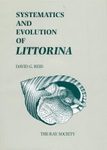![Ferrantia, Volume 64: Rearing of Unionoid Mussels Ferrantia, Volume 64: Rearing of Unionoid Mussels]()
Click to have a closer look
About this book
Customer reviews
Related titles
About this book
colour & b/w photos, colour & b/w illustrations, b/w maps, tables
Language: English with trilingual article abstracts in English, French, and German
The conservation of freshwater mussels is a major challenge as they belong to the most imperiled freshwater organisms worldwide. For instance from the 297 species recognized in North America, 213 are endangered, threatened, or of special concern. Freshwater mussels have an important ecological value as they improve water quality and provide nutrient and energy cycling in streams and lakes by filtering algae, bacteria, and organic matter from the water column. Extensive anthropogenic habitat alternations have led to dramatic population declines in freshwater mussels worldwide. Habitat degradation and water pollution not only harms mussel populations directly, but as the reproductive cycle of most naiads; mussels involve a fish species acting as an intermediate host, any shift or decline within the fish population has a negative indirect effect on the mussel population also.
As in North America, most European freshwater mussel species are highly threatened. The worst affected species are the freshwater pearl mussel (Margaritifera margaritifera L.) and the river mussel (Unio crassus L.). They both show a dramatic decline throughout their European distribution range. Both species are listed in Annex II of the Habitats Directive and M. margaritifera is also listed in Annex V (Directive 92/43/EEC). According to EU legislation (Directive 92/73/EEC; Directive 97/62/EEC) member states are obligated to protect and maintain the local populations of both species. Although many conservation programmes have been initiated all over Europe in the past, some mussel populations are nearing extinction. One possibility to save the genetic diversity of these autochthonous populations could be to artificially breed juvenile mussels and introduce them to their native populations in order to stabilise them. Rearing the juvenile stages of M. margaritifera under controlled conditions could help compensate for an approximate 100% loss during the initial few years.
Many attempts and methods have been used to rear Freshwater Pearl Mussels and other mussel species under laboratory or semi-natural conditions across Europe during the last decade. To discuss the progress in the field of mussel propagation, an international seminar was organised within the LIFE Nature Project “Restauration des populations de moules perlières en Ardennes – LIFE 05 NAT /L/000116″ during spring 2008. LIFE NATURE is the EU’s financial instrument for supporting nature conservation projects throughout the EU.
Many of the papers discussed during the seminar appear in this special issue of Ferrantia and include: Articles describing the dramatic decline of Margaritifera margaritifera in Germany. Ecological aspects of how to develop successful conservation strategies for the fresh water pearl mussel are presented. Semi-natural and laboratory culture and propagation methods for the freshwater pearl mussel and other species including growth factors are discussed. Questions regarding the release of captive bred animals are addressed.
Customer Reviews
















![Ferrantia, Volume 73: Beiträge zur Paläontologie des Unterdevons Luxemburgs, Volume 4 [Contribution to the Palaeontology of the Lower Devonian of Luxembourg, Volume 4]](http://mediacdn.nhbs.com/jackets/jackets_resizer_medium/23/231481.jpg?height=150&width=106)
![Ferrantia, Volume 68: Beiträge zur Paläontologie des Unterdevons Luxemburgs, Volume 3 [Contribution to the Palaeontology of the Lower Devonian of Luxembourg, Volume 3]](http://mediacdn.nhbs.com/jackets/jackets_resizer_medium/21/215099.jpg?height=150&width=106)
![Ferrantia, Volume 63: La Flore Calcicole et Basophile du Massif Vosgien [The Calcicole and Basophile Flora of the Vosges Massif]](http://mediacdn.nhbs.com/jackets/jackets_resizer_medium/21/215136.jpg?height=150&width=106)
![Ferrantia, Volume 25: Atlas des Ptéridophytes des Régions Lorraines et Vosgiennes, avec les Territoire Adjacents [Atlas of the Pteridophytes of the Lorraine and Vosges Regions, with Adjacent Territories]](http://mediacdn.nhbs.com/jackets/jackets_resizer_medium/21/215223.jpg?height=150&width=104)


![Ferrantia, Volume 40: Les Macrolichens de Belgique, du Luxembourg et du Nord de la France: Clés de Détermination [The Macro Lichens of Belgium, Luxembourg and the North of France: Identification Keys]](http://mediacdn.nhbs.com/jackets/jackets_resizer_medium/21/215208.jpg?height=150&width=106)
![Ferrantia, Volume 75: Verbreitungsatlas der Amphibien des Großherzogtums Luxemburg [Distribution Atlas of the Amphibians of the Grand Duchy of Luxembourg]](http://mediacdn.nhbs.com/jackets/jackets_resizer_medium/23/233252.jpg?height=150&width=106)
![Ferrantia, Volume 61: Verbreitung der Zikaden des Großherzogtums Luxemburg: Atlasband [Distribution of Cicads in the Grand Duchy of Luxembourg: Atlas Volume]](http://mediacdn.nhbs.com/jackets/jackets_resizer_medium/21/215141.jpg?height=150&width=106)
![Ferrantia, Volume 47: Verbreitungsatlas der Libellen des Großherzogtums Luxemburg [Distribution Atlas of the Dragonflies of the Grand Duchy of Luxembourg]](http://mediacdn.nhbs.com/jackets/jackets_resizer_medium/21/215197.jpg?height=150&width=106)
![Ferrantia, Volume 33: Die Fledermäuse Luxemburgs (Mammalia: Chiroptera) [The Bats of Luxembourg]](http://mediacdn.nhbs.com/jackets/jackets_resizer_medium/21/215215.jpg?height=150&width=106)
![Ferrantia, Volume 70: Verbreitungsatlas der Weberknechte des Großherzogtums Luxemburg [Distribution Atlas of the Harvestmen of the Grand Duchy of Luxembourg]](http://mediacdn.nhbs.com/jackets/jackets_resizer_medium/21/214555.jpg?height=150&width=106)














![Ferrantia, Volume 57: Die Waldgesellschaften Luxemburgs: Vegetation, Standort, Vorkommen und Gefährdung [The Wood Plant Communities of Luxembourg: Vegetation, Location, Occurrence and Endangerment]](http://mediacdn.nhbs.com/jackets/jackets_resizer_medium/21/215152.jpg?height=150&width=106)

![Ferrantia, Volume 78: Verbreitungsatlas der Reptilien des Großherzogtums Luxemburg [Distribution Atlas of the Reptiles of the Grand Duchy of Luxembourg]](http://mediacdn.nhbs.com/jackets/jackets_resizer_medium/24/242444.jpg?height=150&width=106)
![Ferrantia, Volume 39: Verbreitungsatlas der Heuschrecken des Großherzogtums Luxemburg [Distribution Atlas of the Locusts of the Grand Duchy of Luxembourg]](http://mediacdn.nhbs.com/jackets/jackets_resizer_medium/21/215209.jpg?height=150&width=105)